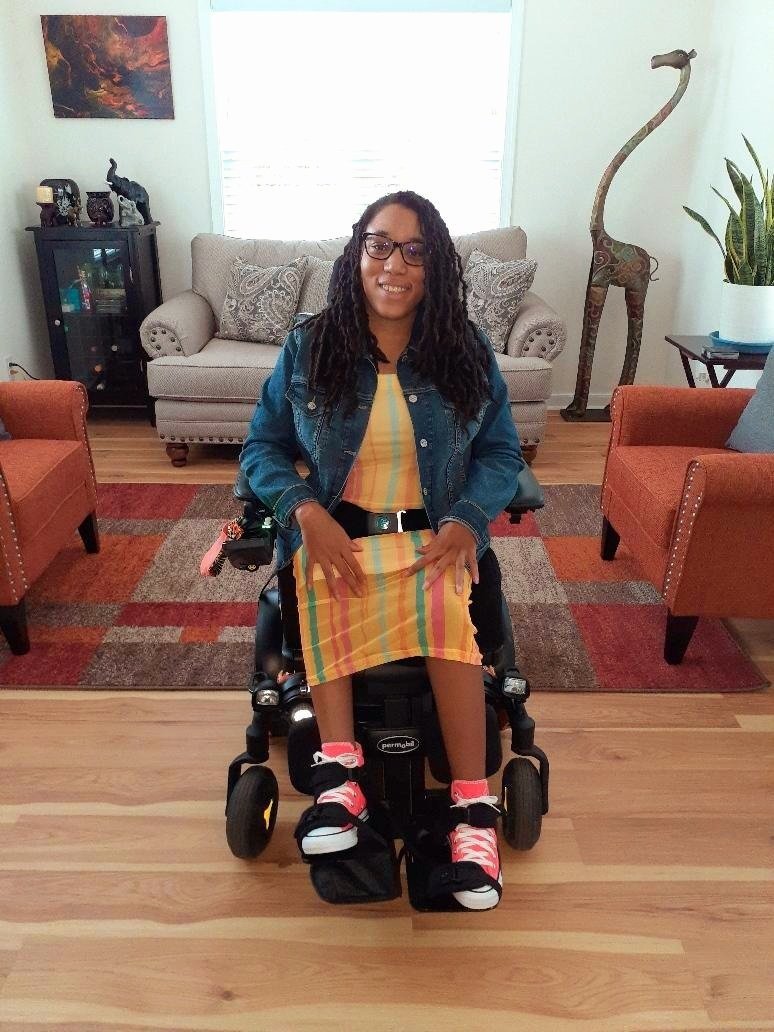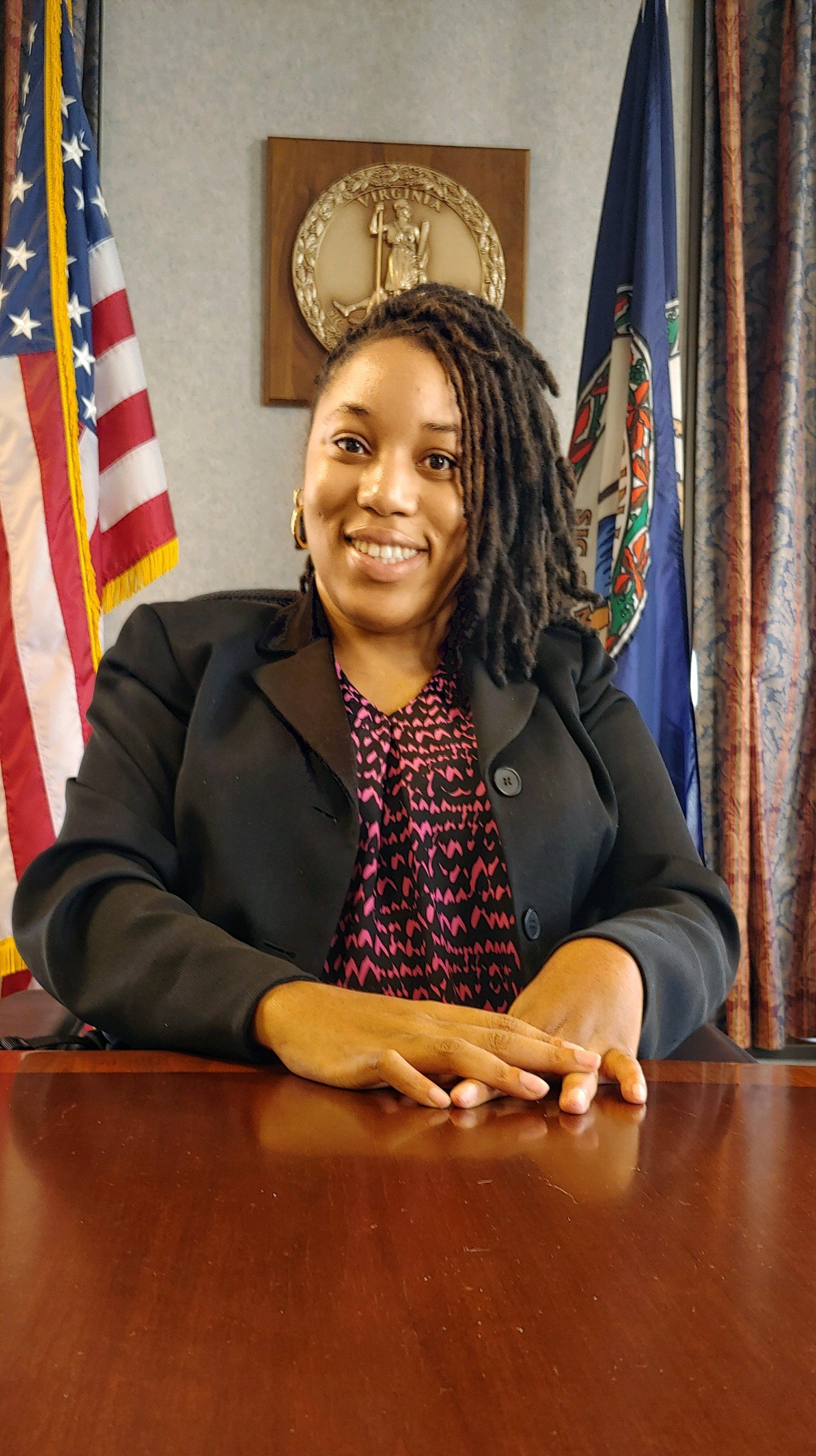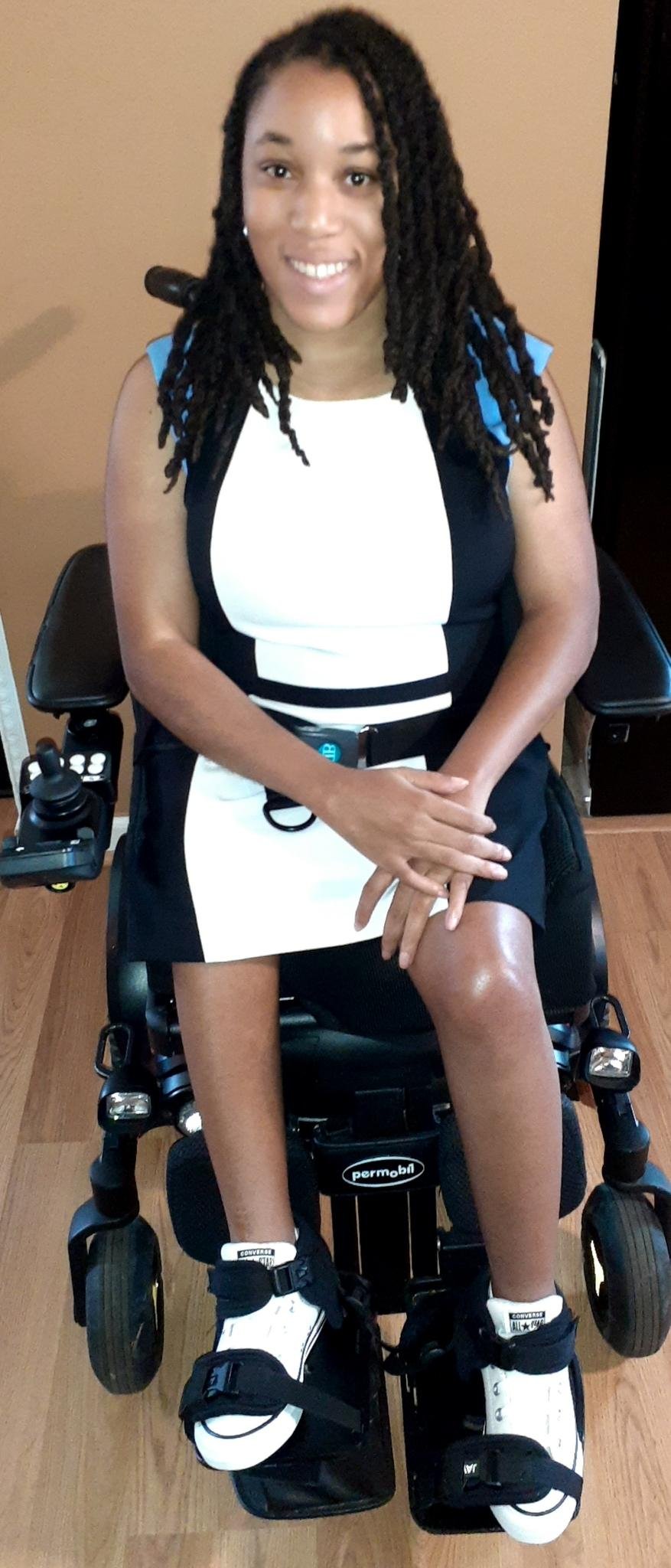Jessica Johnson: Advocating for Mental Health Awareness

Jessica Johnson is a 31-year-old from Richmond, VA living with Spastic Cerebral Palsy. She earned a Master of Arts degree in Clinical Mental Health Counseling from South University-Richmond in 2017 and a Bachelor of Arts degree in Psychology and Business minor from Norfolk State University in 2014. She is currently in residency with a private practice in the Richmond area providing counseling services through Telehealth and working part-time with Virginia's Medicaid agency on the Addiction Recovery Treatment Services (ARTS) team for the last 3 years.
Tell us a little bit about yourself and your story. (name, disability, age, nationality)
A: My name is Jessica Johnson, and I am a 31-year-old African American female native of Richmond, VA living with Spastic Cerebral Palsy.
What is the disability community like in your area?
A: It is only tight if you go to the same school or live in the same housing complex; if not, then the community is most welcoming once you turn 55. Connections are harder to maintain because there is a lot of separation within disabilities and overall ability, in addition to the effort it takes to meet in person for lunch or the mall for example (even before COVID-19). Access to resources is also limited by the area you live in, financial eligibility, or some “policy,” so a lot of persons with disabilities feel it is better to be alone and not advocate rather than connect.
How do you think being a member of the disabled community has affected your employment?
A: In the mental health industry, the primary barrier I have encountered is that Intensive-in-home or Mental Health Skill-Building is the crux of mental health service delivery. Because I utilize a power wheelchair and walker, wheelchair accessibility is the key component and 90-95% of clients’ homes do not have that accommodation…not to mention the immediate assumption that I need services rather than providing services and supporting clients through their journey. Now that I am 3 years post-employment, I enjoy the work I do while making money doing it; it beats $791.00 for an entire month! Working from home for nearly two years has been a major help too although I do miss grabbing a seasonal drink from Starbucks when I was going in the office.
On the other hand, working also makes it difficult to keep essential services like personal care just because you make money; attendants have a high turnover rate and low attendance rate due to other employment opportunities, transportation barriers, and losing time to take care of themselves and their families, but you cannot afford to get mad or upset because they deserve better training and better pay.
How do you think society views dating when it comes to people with disabilities? How has that affected you?
A: It seems like disability and dating do not go together in society when you are growing up disabled, but if you suddenly become disabled by temporary injury, for example, that is the exception because “you can still do.” ) I have recently started embracing my body and enjoying it for how it is after spending many years questioning my beauty and sexiness because I may need help with a transfer, do not like someone sneaking up on me, have scar tissue and muscle spasms, have a startle reflex that may look like I'm jumping out of my body at times, or sit in a power wheelchair. The cool thing about it too is that I have an interesting a creative mind to back it up in deep conversations about many things (i.e. sports, movies, politics, self-care, art, food)!
What is the best way for people to educate themselves on the disability community?
A: Create support groups in local schools, churches, housing communities, or even online that give the person living with a disability and their caregivers/parents/friends/whoever a chance to vent their frustrations openly. Connecting with parks, movie theaters, restaurants, banks, stores, and more to discuss accessibility and design in addition to the importance of inclusion.
What’s the biggest challenge that you’ve faced?
A: The biggest challenge I have faced is helping other people understand and accept my disability while learning to accept it myself, meaning that I have spent a lot of time comparing myself to “able-bodied” people for the majority of my life because being “independent” appears to be the definition of normal; it seems that if I want a positive experience, I have to be the example and obtain it on behalf of all disabled individuals in my community through social, academic, and personal achievements. In the last few years in spite of securing two degrees and working two jobs, I have had to come to terms that some things I want (i.e. walking, a house, relationship) take a different and sometimes longer route…or may not even be in route to accomplish just yet because my normal is simply that, MY normal. It doesn't make me any less of a woman because I don't drive, wear a pair of Converse because heels hurt my feet, need the chef to cut my steak before serving, or try a long-distance relationship. I can still have a great time and enjoy life because I deserve it.
What are you most thankful for in life?
A: My family and friends. Being around my mom, grandmothers, and aunts so often growing up, I learned that the role of a woman is to teach, present yourself appropriately in dress and speech, cook, work hard, and give your best work (even meticulous details as needed), and take care of your family even if it means neglecting yourself at times. Music was a shared pastime with my dad that helped me hone my creative niche because we often rode around town in his car blasting Go-Go, R&B, and hip-hop. He instilled that I fully demonstrate quality by being who I am (including my hair, choice of clothing, and being outspoken) and taking time to ensure that. They both taught me the importance of having strong faith in God because I was raised in and still attend the church my mother and her siblings grew up in.
My friends (both disabled and able-bodied) and many of my cousins have been around me as things about my disability progressed and never judged me for it; they are open to helping me (i.e. ramming doors so we all can get in and out together, cutting up food, helping with restroom duties, working out, chauffeuring) and yes, we fuss and talk junk to one another, but they always keep it real and give me some great laughs over some good food and drinks.
How do you find the current disability representation in the media and your daily life?
A: There is not enough of it! I still have a deep personal interest in modeling and acting. There are characters or people I can relate to in some way, but none of them actually look or move as I do. Many industry influencers should be willing to create and expand opportunities for the representation of persons with all disabilities (especially of color, language, gender identity, and expression) in film, media, and other entertainment.
What are your current goals (short-term and long-term)?
A: My short-term goals right now are to pass my licensing exam and finish my required Residency to become a Licensed Professional Counselor in Virginia and take a much-needed vacation with close friends!
My long-term goals are to get back into physical therapy, start dating again to eventually get married and have a family, be a homeowner, and travel more.
What is something you wish would change? How do you think we could make this happen?
A: I would love to expand diversity and inclusion among all workforce industries. It can happen when we increase the development and design of technical schools statewide and nationally to incorporate programming for all persons, more service areas, as well as training on applications, how to identify Reasonable Accommodations for the interview, and on-the-job training.
What is your advice for others in the disability community?
A: Take your time and do NOT allow anyone to underestimate you; do not be afraid to step away. You are valuable, and being different is normal.
To learn more about Jessica:
Facebook: https://www.facebook.com/ladyjess8
Instagram: @jess_perzeverant8



